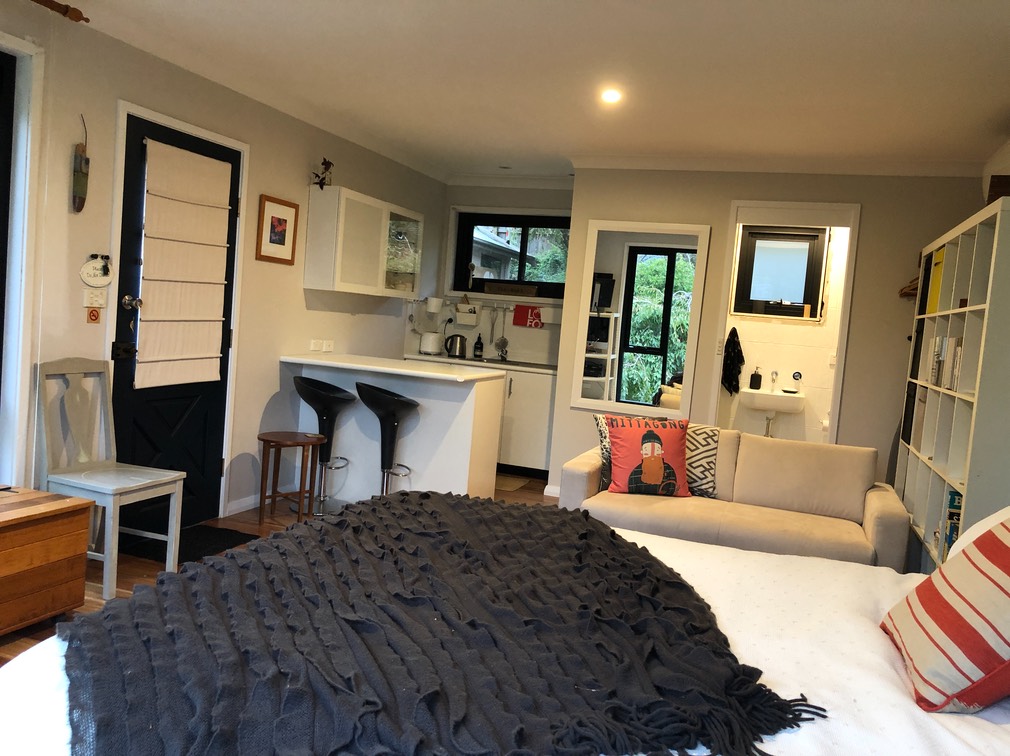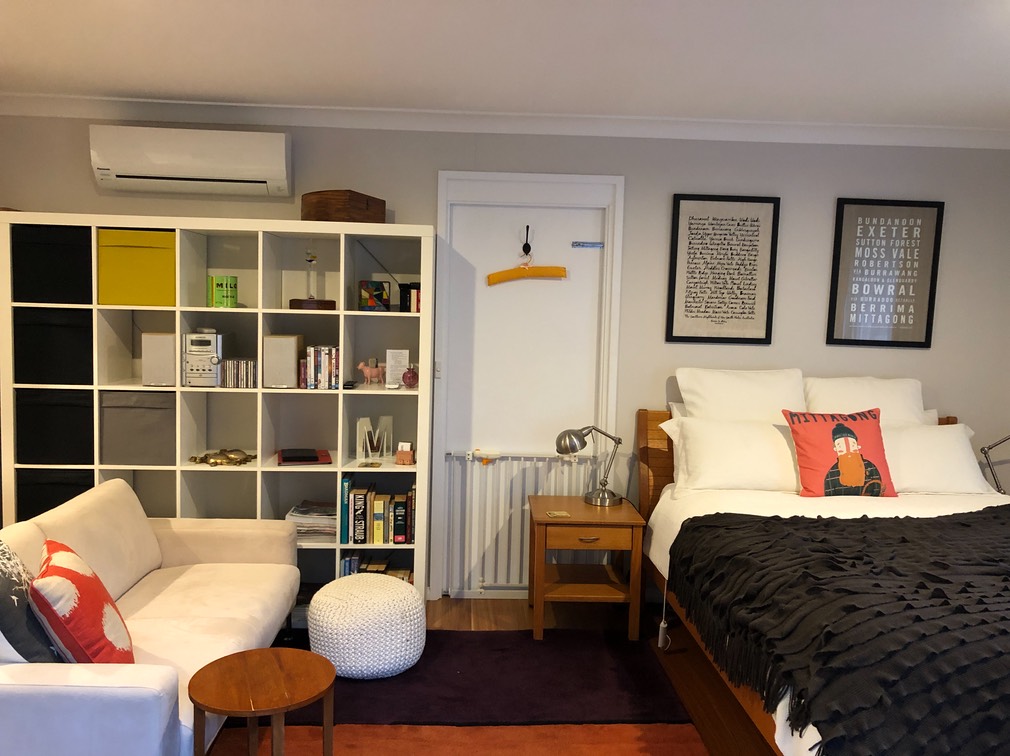
For many years we have been more and more determined to reduce our carbon footprint, make our property a safe and attractive haven for wildlife and work towards self-sufficiency. We still have a long way to go but we feel we are making some progress.
Power
We had reduced our electricity use by 25% over five years but felt we needed to do more. Our 2.2Kw PV (photo-voltaic) solar power system now provides about two-thirds of our power while the solar hot water system continues to provide the majority of our hot water.
We also dry our clothes, including bed linen and towels, on a clothesline in the backyard, which minimises energy usage and gives the laundry a fresh, natural smell.
Energy efficient lights have been installed wherever possible. Choosing energy efficient globes generally costs more initially, but they last much longer and use much less power than standard incandescent globes, saving money over time. We are conscious of turning lights off when leaving a room and when closing up at night. Sensors are used for lighting of outdoor paths.

Chemical use
We try to use environmentally friendly products that are recognised as biodegradable - such as dishwashing detergents, cleaning products, soap powders, rubbish bags etc. Micro-fibre cloths are used to reduce the use of chemicals.
We limit the use of chemicals in the house and garden. Hand-pulling, whipper-snipping and mulching are not quite as attractive as 'quick fix' chemicals but are much safer for wildlife and humans alike.
Water
Although we have Town Water we have three rainwater tanks to supplement garden watering.
Water saving shower heads have been installed and guests are encouraged to reduce their water use. The toilet is a DIY dual-flush - press and release or press and hold for a longer flush.
We hope to install a grey water treatment plant which will direct shower and washing water on to the garden under the mulch. (One day!)
Waste
Much of our kitchen and vegie patch waste is fed to our chickens and ducks, with the remainder going into the compost bins. The chook manure in turn adds goodness to the soil in the veg patch. Any prunings and grass cuttings are spread direct on to the garden beds as mulch, which eventually breaks down, returning carbon to the soil and adding useful organic matter.
Soft paper waste is shredded for compost. Even weeds we pull up are rotted down in black plastic to kill the seeds before mulching. We also grow pigeon peas, arrowroot, comfrey, lemongrass and various green manure crops all of which improve the soil by nutrient capture or mulch properties.
Glass jars are re-used for jam-making and other glass, plastics, cans and any remaining paper are sorted into the recycling bin.
Re-use is high on our agenda and we say NO to plastic shopping bags. You will find bags for reuse left by previous guests in the under sink cupboard and lining the bins. We minimise our waste to an 80litre bin once per fortnight - and its rarely full!
Guest impacts
If guests are staying more than one night we do not change the sheets and towels daily, but only as needed or requested.
Buying local produce reduces the costs to the environment of transporting it long distances (low food miles) so we do this wherever possible. To this end the eggs are free-range from our chooks and fruit and vegies are either from our property or from a local greengrocer who sources locally-farmed produce as much as possible. Kitchen supplies are provided in large jars or decanted from large jars into smaller reuseable containers which saves on wasted packaging.
We ask that guests respect our aims and protect our precious resources by turning off lights, heating and fans when leaving their room, take reasonable length showers and separate their rubbish and recycling in the bins provided in the kitchen.
Please help us to reduce the carbon footprint of Milo’s.
